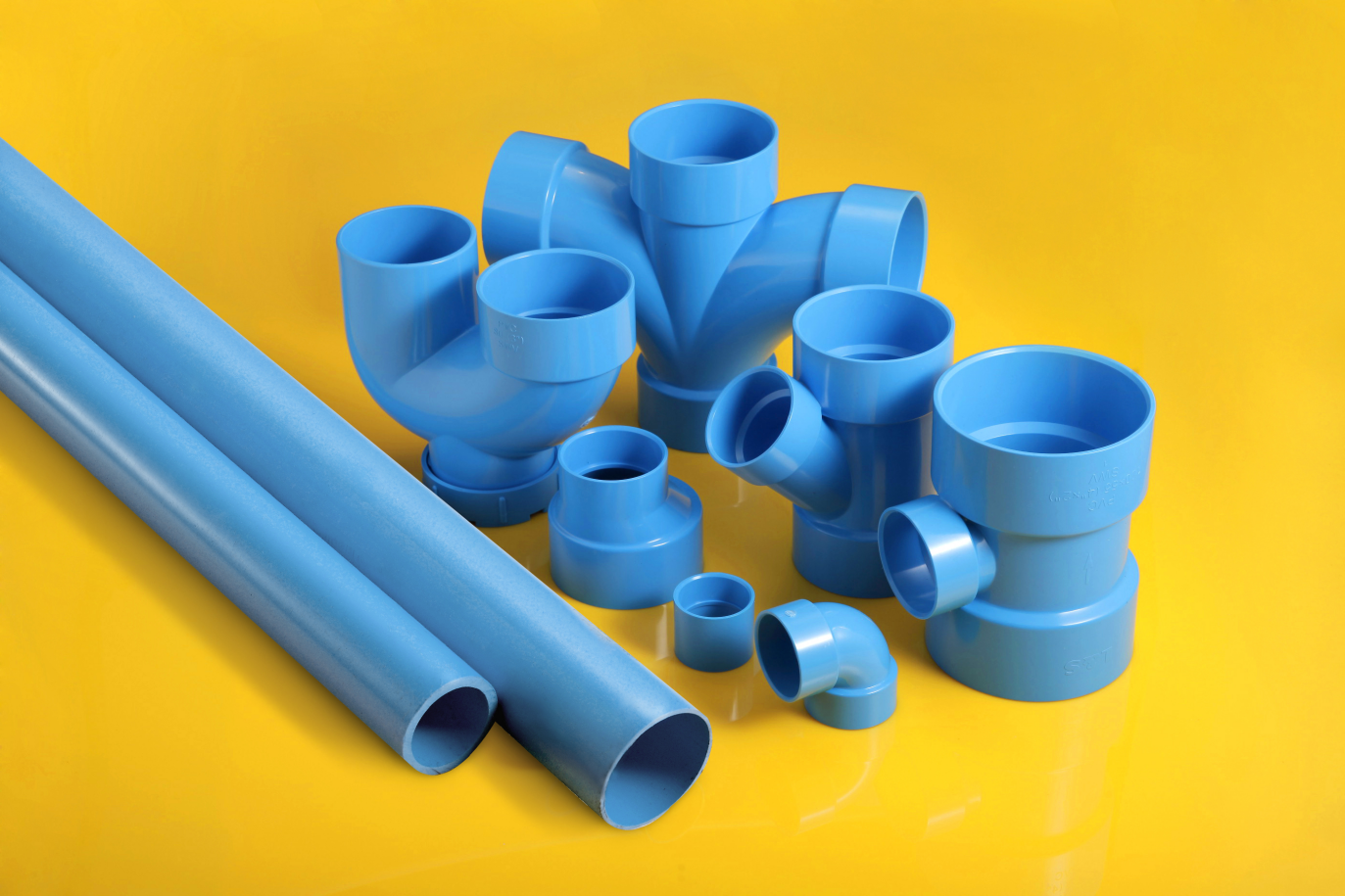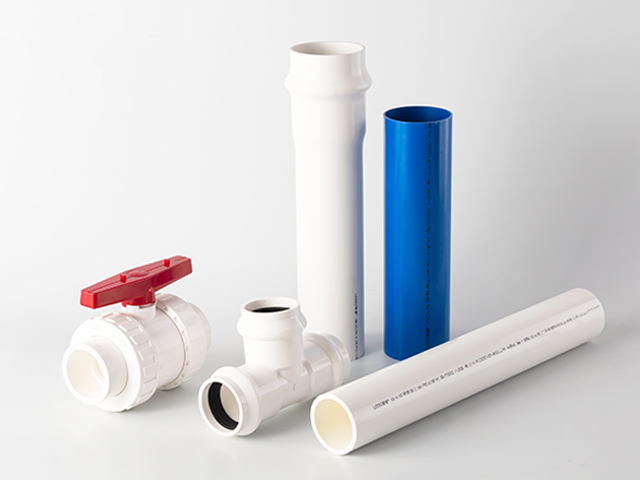Unplasticized polyvinyl chloride(uPVC) omits the plasticizers in standard PVC formulations. That absence yields a rigid structure with higher tensile strength, lower thermal expansion, and a strong corrosion tolerance. It stays inert in contact with most chemicals. That’s why uPVC pipes work well for domestic water lines and heavy-duty industrial conduits. Its rigidity also diminishes leaks and pipe fatigue over time. Next, let’s explore more benefits of using uPVC pipes for your home and industrial projects.

UPVC pipes have preserved their structural reliability for decades. It might be up to 50 years of uninterrupted operation in water distribution lines. Its rigid vinyl chloride polymer resists mechanical fatigue in high-pressure conditions, and it can range up to many bars in many industrial applications. Moreover, combined with our high-quality uPVC pipes and fittings, the long-term stability of the system can be ensured.
In subterranean layers with acidic or alkaline soils, uPVC pipes are unaffected by electrochemical reactions that degrade metal piping. Saline water in coastal regions doesn’t harm the pipe’s surface or cause pitting. The corrosion-free property also implies that there’s less risk of metallic leaching or discoloration in beverage production and ultrapure water systems. It assures slight product impurity and lengthens service intervals in industrial fluid transfer lines.
UPVC pipes are lightweight and can be easily installed using solvent cement, threads, flanges, or gasketed joints, significantly simplifying the construction process. Additionally, their lightweight nature enhances logistics efficiency by reducing the need for vehicles and lifting equipment during transportation. More importantly, when paired with our PVC-U pipe fittings, they further minimize installation costs. This makes them particularly valuable for large-scale projects where tight deadlines require the rapid deployment of piping systems.
UPVC pipes have a lower material cost than many metal-based options. It decreases capital expenditures for new projects. Long-term working expenses also drop thanks to fewer repairs and replacement needs in corrosive or abrasive process lines. The simplified jointing methods need minimal specialized labor for lower project costs. In large municipal projects, such budgetary advantages free up resources for system or water treatment enhancements.
UPVC pipes can bear aggressive acids, alkalis, and concentrated solvents in many chemical-processing facilities without degrading. For example, sodium hydroxide at high concentrations has a negligible effect on uPVC’s polymer matrix. It extends to industrial discharges with chlorinated or fluorinated compounds for flow without scaling or internal rupture. The material’s molecular structure also resists permeation when transporting volatile or perilous chemicals.
A uPVC pipe is a moderate insulator. It keeps fluid temperatures over short to medium distances and helps decrease energy losses. Its low thermal conductivity protects temperature-sensitive food products or chemicals from unwanted heat gain or loss. In hot-water circulation loops, the pipe’s limited thermal expansion inhibits pipe elongation. Otherwise, it could cause joint stress and leaks. Such thermal stability adds another coat of reliability in temperature-critical uses.
Unlike certain thermosetting polymers, recycled PVC-U fitting materials can be reprocessed into new pipes, building materials, or other plastic products, thereby reducing the need for raw materials and conserving resources. In many regions, recycled uPVC granules are widely used in non-pressure systems, supporting a circular material flow and significantly reducing landfill waste.
The smooth inner wall and low-friction properties of uPVC water pipes minimize flow resistance, enabling high flow rates. When combined with our uPVC pipe fittings, these pipes perform efficiently even under high-flow conditions. Additionally, the smooth interior surface prevents sediment and biofilm buildup, which is critical in potable water systems where bacterial colonization poses health risks. This self-cleaning feature reduces maintenance costs by eliminating the need for mechanical or chemical pipe cleaning.
A uPVC pipe may have titanium dioxide as a UV stabilizer. It avoids surface degradation and keeps mechanical strength. It also helps curb discoloration, chalking, or micro-cracking from exposure in regions with intense sunlight. Roof drainage systems and outdoor water supply lines benefit from stable performance and exterior. The material’s resistance to photo-degradation also cuts upkeep costs with no premature pipe replacement.
Thanks to their versatile attributes, uPVC pipes are ideal for municipal water supply, commercial and residential water distribution, industrial liquid transportation, and sewage treatment. They comply with local Thai standards.

At LESSO, we design our PVC-U pipes to meet ASTM standards, ensuring exceptional durability and performance. To support robust connections in plumbing, wastewater treatment, and irrigation systems, our product portfolio features a wide range of pipe fittings, including PVC-U drainage pipe and fittings, PVC conduits and fittings, and PP-R water pipe and fittings tailored to meet diverse needs.
Choose our uPVC pipes and fittings for your next plumbing project. Crafted to rigorous standards, they offer unmatched reliability and longevity for your systems.
TOP